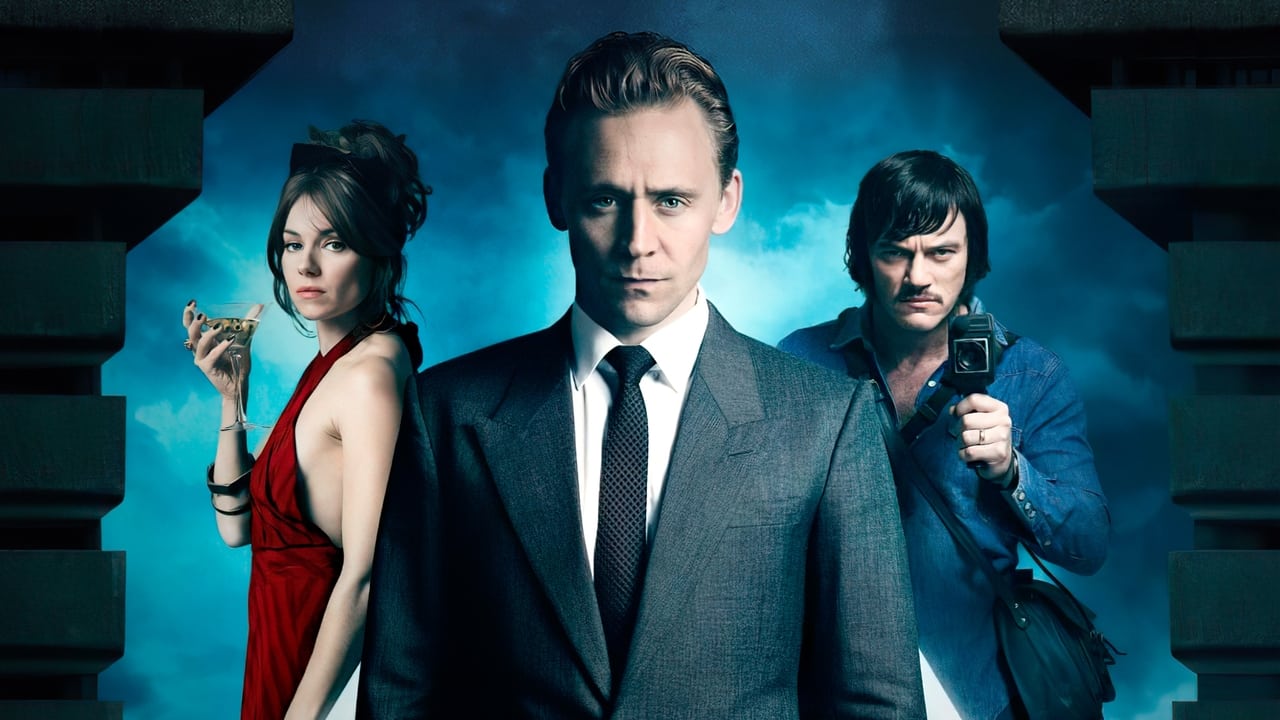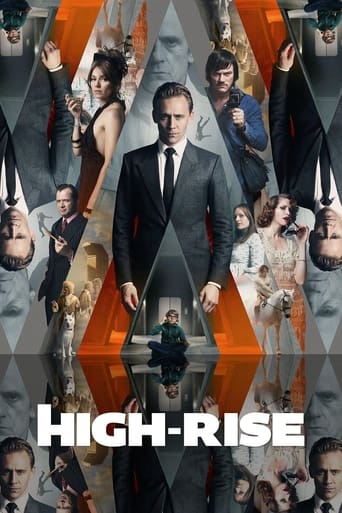

It as an almost minimalistic setup where in a skyscraper artists in different states of their carreers try to find a way to cohabitate. As in real life this "togetherness" relies on the submission of some by others. Above all the intrigues of the daily life is the "administrator" of this social enterprise. It gets caotic when the submitters lose their power and the submitted refuse to fulfill their duties. Very interesting perspective with a touch of nonesense.
... View MoreLondon, 1970s. Dr Robert Laing moves into a new high-rise apartment building. It is soon apparent that there is a class-divide between the wealthier upper-floors inhabitants and the middle-class lower- floors tenants. Over time this escalates into full-blown war...Had some potential as an examination of class divides and their consequences, also as a dark drama. The opening scene was intriguing, but it soon becomes apparent that the only reason to continue watching is to see how we end up there. Hardly anything from the period in between makes sense, and just gets more and more random as time goes by. Yes, the idea was to ramp up the level of anarchy, but some degree of continuity was still called for. Becomes pretty stupid after a while.The whole us vs them thing is also laid on so thick and unobjectively that engagement is non-existent. Good cast - Jeremy Irons, Sienna Miller, Elizabeth Moss, Tom Hiddleston , James Purefoy, Luke Evans - do their best but are massively hamstrung by a very weak script and one-dimensional direction.
... View MoreHigh-Rise is basically an adult version of Lord of the Flies. Instead of kids abandoned on an island, we have multiple social strata living into a high-technology (for the standards of the '70s) building in which everything works perfectly. Everything, but human nature, which quickly divides the tenants into hierarchies that degenerate into the exploitation of the "poor" and the exaltation of the "rich". I use quotations marks to divide the "rich" and the "poor" because everyone pays the same rent; so, why do some ones live in the superior luxury floors, while other ones barely survive in the filthy basements? That might sounds like an archaic communist fantasy about war of classes and the uprising of the proletariat... and that's very probable, because High-Rise is based on a novel written by J.G. Ballard, the subversive author of other similarly transgressor books such as Crash, The Drowned World and the anthology The Atrocity Exhibition. For better or for worse, the ideals of High-Rise represent the "progressive" British thought from the '70s, and that justifies the wonderful retro atmosphere achieved by cinematographer Laurie Rose and production designer Mark Tildesley. Unfortunately, the message "the humans are animals ready to return to savagery as soon as the electricity is interrupted" has been repeated too many times... and in more interesting ways. The main problem of High-Rise is that its second half gets repetitive until getting a bit tiring. Director Ben Wheatley and screenwriter Amy Jump rejoice themselves portraying uncountable manifestations of cruelty and barbarism, whether in the shape of grotesque orgies, beatings against the ones aspiring to become revolutionary leaders or the killing of an innocent dog (unfortunately, High-Rise isn't a "pet friendly" film). The message had been left clear since the first half of the movie... but Wheatley and Jump repeat the same ideas over, and over, and over again. High-Rise is a film intended to make us think... but sometimes, it thinks for us, instead of bringing us the tools to draw our own conclusions. On the other hand, it managed to hold my interest, the performances are brilliant, and I also appreciated Clint Mansell's score and the attractive images. Maybe deleting half an hour, High-Rise would have been a potent punch to society's stomach. But with its 120-minute running time, it ends up being as accommodating as the high classes it pretends to denounce.
... View MoreThis movie is perfectly crafted and visually rich. Let yourself be absorbed by it's strange and brutal philosophy. It's brimming with impressive sequences and unforgettable moments that defy language. Probably the reason it frustrates people. If you want a movie that uses the power of film in the best way possible than this is the one for you. If you've ever been curious about Ballard or are a fan already then you'll love this.
... View More